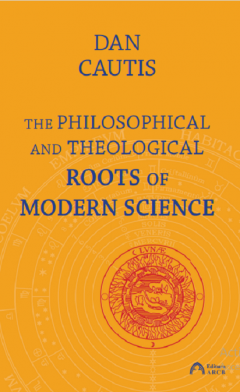Modern science as understood today is a recent invention: it appeared in the High Middle Ages in Western Europe. This seems to be a surprising location, considering that Western
Europe at the time was a backward place just emerging from a long unstable political and social situation. However, it did happen and, once born, science spread its wings fast and wide. Its remarkable successes, from the Great Scienti
c Revolution of the 17th century to present times, raises the natural question: why there, why then? In search of
an answer, this book uncovers an informed, realistic picture of the complex relationship between Church and science. *** Dan Cautis is an associate professor at the Georgetown University. His lectures on Fundamental Concepts of Modern Science present key-concepts in physics and cosmology, outlining their interactions with Theology and Philosophy. In his AI and Transhumanism courses, Cautis analyzes developments in Artifcial Intelligence, Transhumanism and Technological Singularity. A visiting professor with the Department of Roman Catholic THeology of the University of Bucharest, Dan Cautis also lectures on Church and science from a historical perspective, covering the relationship between the Catholic Church and the development of science from the Middle Ages to the present times. His book, Philosophical and Theological Roots of Modern Science, comes as a textbook for the students in History and Philosophy of Sciences, but it may prove equally informative for any reader interested in how modern science came into being.








